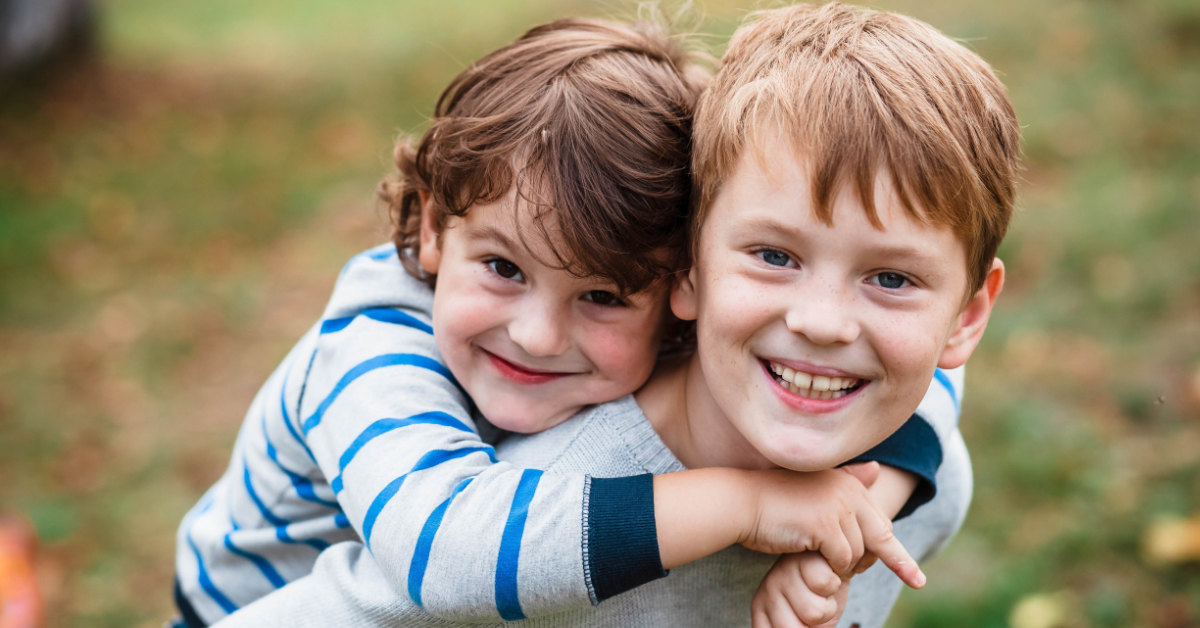I had to look back on my life when I came across this, the second-born that I am (albeit not a second-born son). I may not be a criminal, but I’m certainly the dauntless one in the family, if that counts.
Several studies have tried to determine the effects of birth order on certain aspects of human psychology and social behavior. Many have shown that firstborns often fare better than their younger siblings in academic achievements, intellect, and the labor market [1]. However, a 2017 working paper has taken the birth order debate to a whole new dimension [2]. Released by The National Bureau of Economic Research, the paper suggests that second-born sons are more likely to become juvenile delinquents and adult criminals than their older counterparts [3].
Conducted by a group of MIT economists, this research involved a large-scale study of thousands of children from Florida in the U.S. and Denmark. Studying participants from two widely different geographical locations allowed the researchers a chance to pull data from diverse socio-economic and political settings.
Second-born sons: a positive correlation between birth order and delinquency
Analysis of the data drawn from the intercontinental participants showed that second-born sons are 20-40% more likely to be objects of school disciplinary actions and the adult criminal justice system more than the firstborns. In both locations, second-born kids are 30-40% more likely to be involved in juvenile trouble. In Denmark, they were found to be 40% more likely to be incarcerated at the age of 21 than the firstborns, and 36% more likely to be involved in violent crimes. The children in Florida had a 29% higher chance of being objects of the school disciplinary system.
“I find the results to be remarkable that the second-born children, compared to their older siblings, are much more likely to end up in prison, much more likely to get suspended in school, enter juvenile delinquency,” said Joseph Doyle, co-author of the paper in an interview with NPR [3]. “Across all these outcomes, we’re getting 25 to 40 percent increases in the likelihood of these outcomes just by comparing a second-born sibling compared to a first-born.”
The study clarified that this tendency of second-born sons to be more delinquent is not caused by any sort of health disadvantage. Actually, second-borns are often healthier and quicker to adapt than their older siblings.
Possible explanations
The researchers came up with different viable theories to explain this effect. One possible explanation is that second-borns do not receive as much parental attention and care as the firstborns. Firstborns are usually the center of the universe for the first few years of their lives before their siblings begin to arrive. Second-born children would usually have to make do with half that amount of attention.
“As many other earlier studies have noted, firstborn kids get the undivided attention of their parents, whereas kids born later are often competing for parental time and resources,” said NPR’s Social Science Correspondent Shankar Vedantam. “Another factor that might be different is the peer group for first- and second-born kids is different. Older and younger siblings come from the same family, but they have different peer groups early in life.”
Another explanation is that firstborn children would most likely have adults as their role models in those critical formative years. Adults usually try to be the best of themselves around children. Second-borns, on the other hand, are naturally inclined to take their older siblings as role models.
“And the second, later-born children have role models who are slightly irrational 2-year-olds, you know, their older siblings,” says Doyle.
A work in progress
Although the study is rich with empirical data drawn from years of extensive research, it’s important to note that it has not been peer-reviewed or formally published. It’s a working paper funded by the National Bureau of Economic Research (NBER) and there’s a lot more to be done in the future.
However, according to the paper, “These new results have important implications for social policy. Our findings that birth order appears to influence the likelihood of delinquency among boys, and that differences begin to appear early, suggests potentially fruitful avenues for monitoring and interventions.”
What this study does not mean is that all second-born children are doomed to be delinquents and convicts later in life. Heck, I turned out OKAY. It only provides evidence that lesser parental attention and lack of quality role models may increase the risk of delinquency in second-born children.
Keep Reading: The Only Way To Win With A Toxic Person Is Not To Play
Sources
- “Why First-Born Kids Do Better in School.” Slate. V. Joseph Hotz. October 31, 2013.
- “Second-born children are apparently the BOLD ones in the family.” Roller Coaster. Ryan Christensen.
- “Birth Order and Delinquency: Evidence from Denmark and Florida.” MIT Sloan. Breining et al.
- “Research Shows Birth Order Really Does Matter.” NPR. Shankar Vedantam. July 4, 2017

